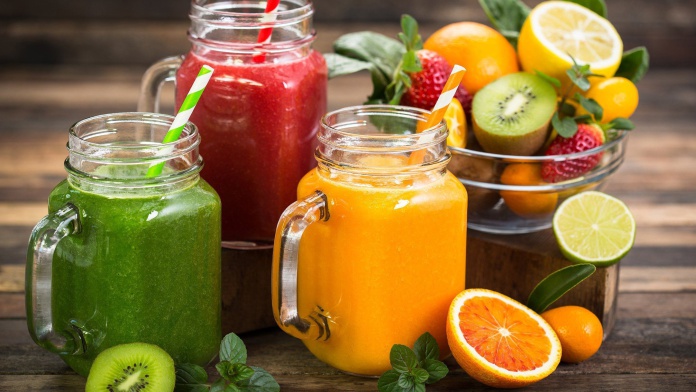
Is fruit bad for you?
Is fruit bad for you?
Fruit has been demonised in many circles for many years, the story goes that ‘Fruit is nature’s Candy’. We need to be wary of it because it contains sugar (including ‘the bad one’: fructose!), and you should definitely only have one piece a day.
But, is it really a problem?
Are all these claims warranted? I mean, it has sugar in it!
The whole thing around sugar, for me, is people looking for a scapegoat. This thing is bad and the cause of the problem. It’s never that simple, though. Let’s look at any carbohydrate source, it contains sugar, all of them do, every carbohydrate source, some more than others, some in varying amounts, some in different structures, some with differing accompanying micronutrients and fibres, but they all get broken down into sugar, their most simple structure that the human body uses as a fuel source. So whether we consume sweets, fruit, rice, vegetables etc, they all get broken down into sugar, a carbohydrate’s most basic form.
But fruit sugar is different, right?
The key reason people demonise fruit is that it contains the sugar, fructose, which has close ties to non alcoholic fatty liver disease, abdominal fat gain and diabetes. This is because of the way which fructose is ‘processed’ in the body. Briefly, carbohydrates in the diet are broken down into either glucose or fructose; glucose is deposited in the blood and used for a lot of different things, but fructose cannot go straight to the bloodstream, it goes to the liver first. When fructose reaches the liver it can be converted to glucose and used as per normal, stored as liver glycogen or converted into fat.
Generally speaking, carbohydrate (glucose) is very difficult to convert to fat in any meaningful amount due to an enzyme called phosphofructokinase (PFK). This enzyme holds back the process, but as you can probably guess from the name, fructose bypasses it and is much more readily converted. The liver can only store so much glycogen and when your liver is ‘maxed out’, the process known as de novo lipogenesis is upregulated and you start gaining fat around your organs. I don’t need to tell you that this is probably a bad thing…
Now at this point, and in any argument, critical thinking is key. We need to avoid looking at things in a simple way and start considering the entire picture. Your body is a very intricate and complex system which has a lot of checks and balances, and just because one mechanism exists (fructose -> liver -> fat) does not meant that we can apply that logic to the real world. It’s often been said that common sense shouldn’t be applied in biology, and this is one of the situations which this rings true.
So, to fructose and getting fat:

The body is always breaking food down and using some as fuel for immediate action, using some to actually process that food, and storing some for later. It’s a continual process, so don’t think that just ’cause the body is going to store some fat for later that it will be there forever, it won’t, the body is always continually breaking down, using, and storing. It might lay down some body fat, only to use it later that day.
What’s important here is the endpoint fat balance. You are storing fat even while in a calorie deficit, but while you may store X amount of fat molecules during the day, you’ll burn X+, resulting in a negative overall balance. If you are in a calorie deficit, fructose doesn’t sidestep this, and fructose therefore DOES NOT prevent or slow fat loss while dieting (1).
Liver Glycogen is largely proportionate to overall calorie intake, which means that there’s almost always going to be ‘space’ while you’re dieting, stores will be a little fuller when you’re at maintenance, and you’ve got a good chance of being topped up while in a surplus. This means two things – it means that in those individuals who are overweight or obese, there’s a good chance that fructose will be stored as abdominal fat, especially as this group is likely to be eating a lot of fructose, as we’ll come to (this correlation is one major source of what is known as fructose alarmism) but also that people looking to gain muscle may need to be careful. Training hard will offset a lot of the abdominal fat gain associated with high fructose intake in a surplus (2) but you don’t get a ‘get out of jail free’ card here (at least that’s what the rat data tells us, which as always needs to be taken with a pinch of salt to some degree).
So, if you’re eating above maintenance, you should avoid fruit, right?
Well, maybe not. Sure, if you’re eating more than you need, the fructose that you eat has a much easier time getting stored as fat, and you do not want to be gaining abdominal body fat if you can avoid it (That’s the fat which is most associated with cardiovascular disease risk amongst other things) but at least one study (3) has indicated that the threshold for negative health effects is around 100g fructose per day, which is a lot. To give you an idea, a standard medium-large banana has up to 4g fructose, and an apple has a little more at around 10g. I don’t know about you, but I don’t know many people eating 10 apples per day, every single day.
I think it’s fair to say that whole fruit isn’t the issue when fructose comes up, and it shouldn’t really be a concern for those of us who are relatively active (especially when fruit also comes with a ton of micronutrients and fibre). No, the ‘problem’ with fructose comes when people are drinking lots of juices or fizzy drinks and eating a lot of sweets/cakes with added sugars – the Standard Western Diet… Sucrose, table sugar, is 50% fructose, and if you’re eating a lot of it, that adds up! Again I don’t want this to come across as me telling fit, healthy and athletic people never to eat these things because your energy need is much higher than most and as we’ve seen, exercise does alter the way your body handles these things, but it’s not unfair to say that your carbohydrate intake shouldn’t come predominantly from added sugars, at least while you’re in an energy surplus. Whole fruits, however, are absolutely fine in a sane amount which people actually eat.
That really is the crux of the argument – the amount you eat – and it IS something we need to be mindful of.
Where we can maybe start to put a warning sticker on the fruit subject is with dried fruit or juices. With these we are now looking at a highly concentrated source of sugar, calories, and not as much micro nutrition due to the process of drying and dehydrating, or of removing the pulp, both of which will of course reduce the micronutrients. Now this doesn’t make dried fruit or fruit juice absolutely bad, but it definitely puts a warning sticker on it. Whipping open a bag of dried mango (mega moreish) is very different to cutting up a fresh mango and chowing down, it’s going to be far easier to overeat on dried fruit than it is on fresh fruit, thus taking on board a lot of overall calories – this is even more important for children and the general public for whom the ‘fruit is good’ message can lead to people thinking that they can eat as much fruit as they like.
In fact, the way which we communicate the message about fruit needs to be carefully considered. It’s an unfortunate fact that simply advising people to eat more fruit results in exactly that, they eat more fruit, and therefore more calories. I’ve worked with people who have come from certain weight loss groups which advocate fruit being ‘free’ who will eat 4-5000 calories of fruit per day (5 bananas will do it) on top of their ususal meals and wonder why weight loss is slow. Rather than simply ‘eat more fruit’, we should be advising that fruit is enjoyed in place of a chocolate bar, some biscuits or a dessert. Replace, don’t just add, and be mindful of your total intake of everything.
In short, fruit is good for you, enjoy it, embrace it, especially in the summer as it tastes lovely here in the UK, just don’t overeat it, ’cause overeating anything makes you overweight, fact.
Want to learn about the dynamics of food, health, performance, and body composition? Learn nutrition, fitness and health information like this every day on the BTN Academy. Find out more about our online nutrition courses and when they start here.
References
- Tittelbach TJ, Mattes RD, and Gretebeck RJ. Post-exercise substrate utilization after a high glucose vs. high fructose meal during negative energy balance in the obese. Obes Res 8: 496-505, 2000
- Dantas EM, Pimentel EB, Goncalves CP, Lunz W, Rodrigues SL, and Mill JG. Effects of chronic treadmill training on body mass gain and visceral fat accumulation in overfed rats. Braz J Med Biol Res 43: 515-521, 2010
- Livesey G, and Taylor R. Fructose consumption and consequences for glycation, plasma triacylglycerol, and body weight: meta-analyses and meta-regression models of intervention studies. Am J Clin Nutr 88: 1419-1437, 2008